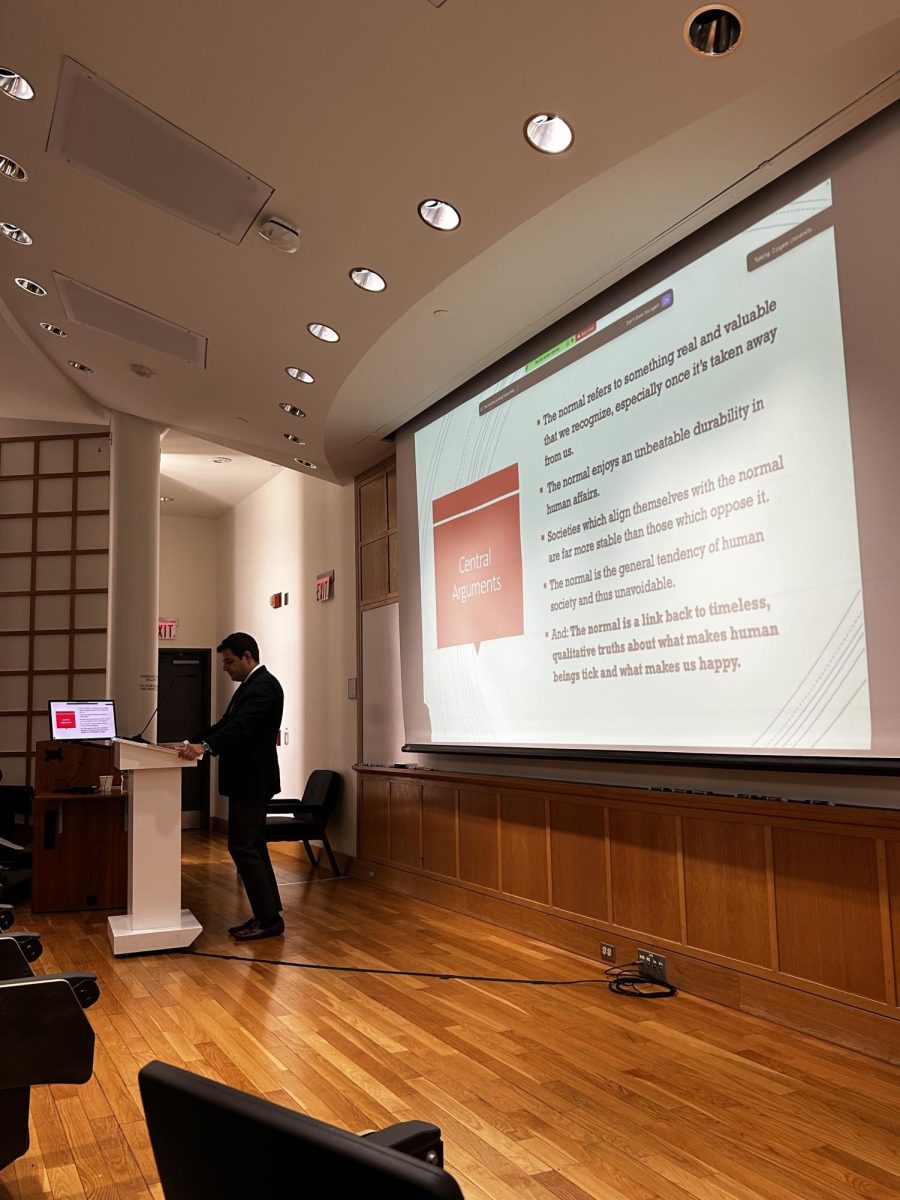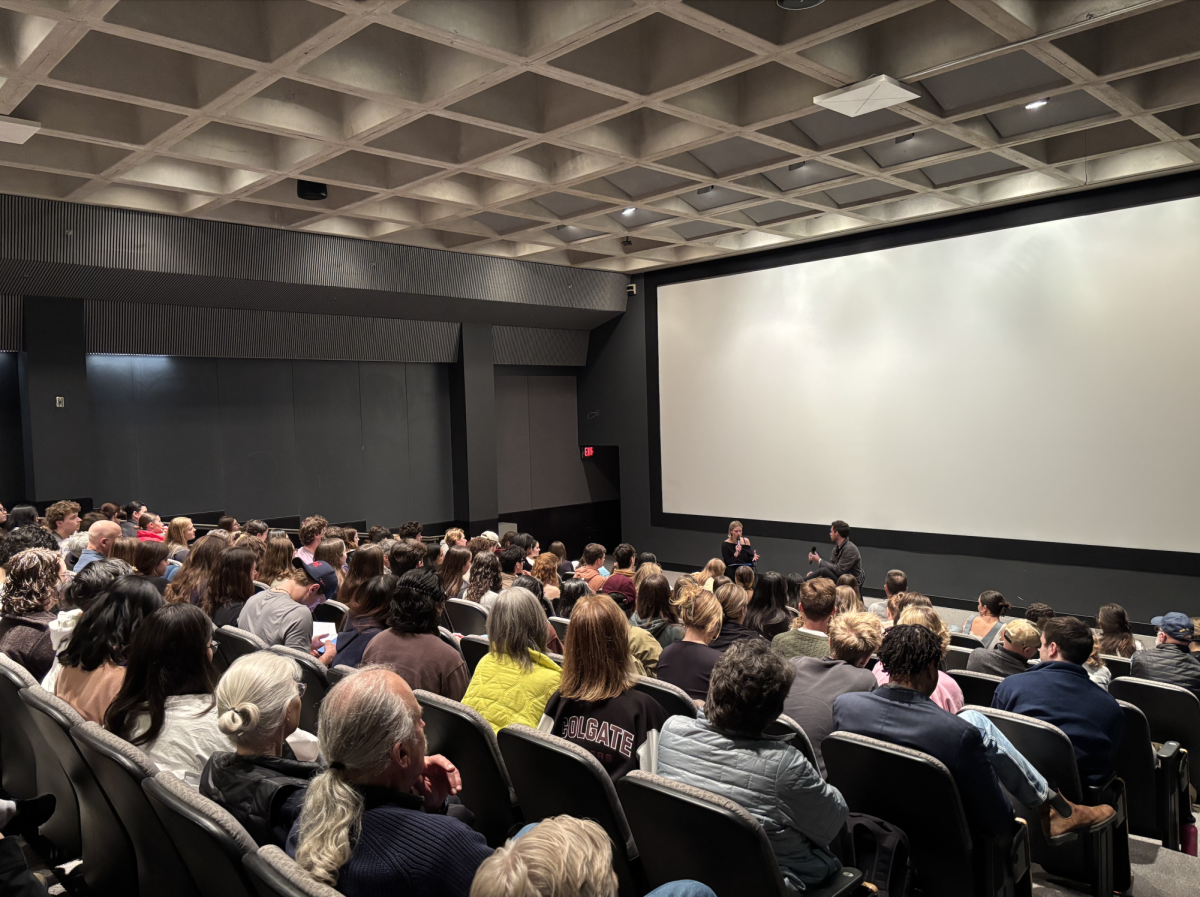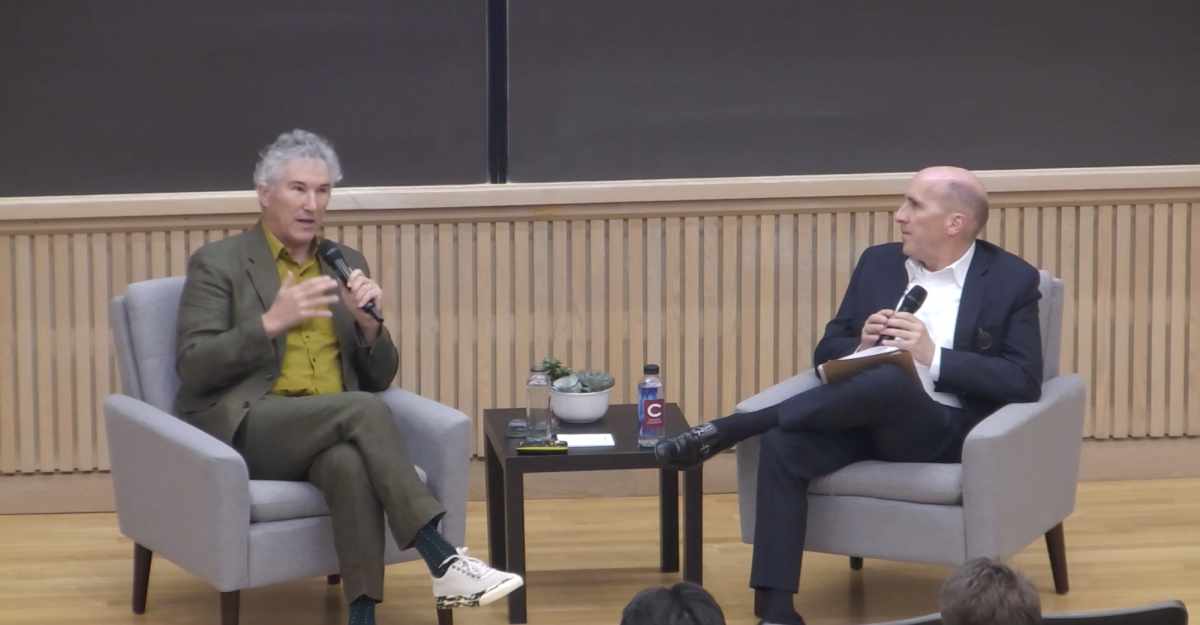As part of Colgate University’s LGBTQ Studies program’s speaker series, “From Colgate to Career,” Dr. Elisa Burns ’78 joined Lindsay Toman, assistant professor in the department of LGBTQ studies, for a discussion about her career path and advocacy for reproductive rights. Burns is an OB/GYN and gynecological surgeon who graduated from Colgate in 1978, when the University was a predominantly male institution, with a bachelor’s degree in biology.
Burns explained that her experience at Colgate was filled with both highs and lows. While she made many friends during her time, she also experienced a sense of isolation as one of the only LGBTQ+ students on campus.
“There were no other gay students except for me,” Burns said. “There were no faculty members out. It just was not spoken about.”
Burns continued to discuss her experience as an LGBTQ+ student in medical school and the lack of conversations or training on how to provide healthcare to individuals within the community. She expressed that this lack of knowledge had serious implications when it came to new doctors learning to care for patients who were different from them.
“There was no mention that there were gender issues or sexuality, or that we needed to know how to approach people who weren’t exactly the same,” Burns said. “There was absolutely no real knowledge of this.”
In addition to the lack of conversation regarding healthcare for members of the LGBTQ community, Burns discussed her experience in medical school as a female student and how that brought along its own difficulties and limitations. Additionally, she noted how the restrictions that came with being a female medical student led to her choosing to practice as an OB/GYN.
“It was a pyramid program where you started with a bunch of people, and they kept moving down, and the women were immediately removed from the pyramid,” Burns said. “So, almost by default, I chose OB/GYN.”
Burns concluded the conversation by reflecting on the current state of minority healthcare and how it has changed as a result of the Trump administration. She noted that there is a significant amount of uncertainty surrounding reproductive healthcare. However, she encouraged all physicians to continue to prioritize the health and well-being of all their patients.
“Despite our government, our community and medical societies are remaining strong in terms of their support for gender affirming care,” Burns said.
Sophomore Kaitlyn Willett was interested in Burns’s career path and how her experiences can be useful in helping physicians navigate the current state of healthcare.
“I thought her talk was extremely relevant with everything that’s going on currently,” Willett said. “I really enjoyed hearing about how she [navigated] the medical field and is still doing stuff that is related to the medical field but in a more political [perspective]. And, how she’s still having an impact even without medicine.”
Sophomore Sylvia Cosin, who wants to pursue a career in the medical field, reflected on how Burns provided her with an interesting perspective on how the medical field can change over time.
“I want to be a women’s health doctor, so it’s really interesting to hear about her experience knowing that with the current administration and current law changes, my experience could be incredibly different,” Cosin said.











